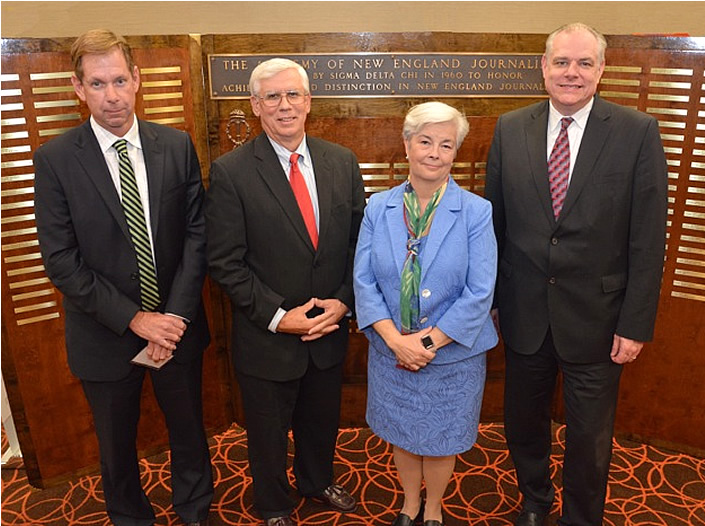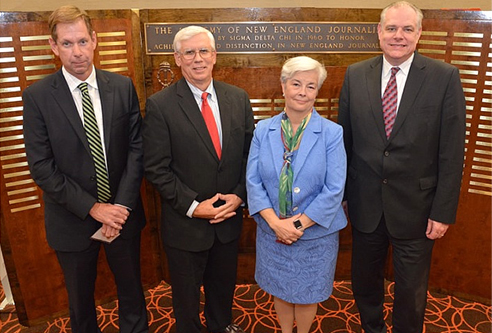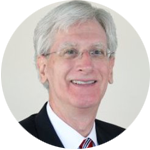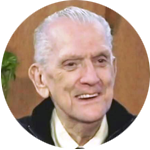Many community newspapers I’ve seen (and I’ve seen hundreds!) struggle to find a visual element to place on the opinion page.
As result, they’ll often place an editorial cartoon on the page that really has little interest for or impact on readers. They are there to be – well — there.
Those cartoons might be national or statewide in scope. Some might actually apply to what is going on in the community. But far too many don’t.
To make better use of that space, some publishers commission local artists to do a cartoon that might occasionally accompany an editorial or opinion column.
That costs. If you’re OK with that expense, more power to ya. But, if you want a visual element on the page that won’t cost you a cent (except in staff time), here are three ideas for you to consider. These are in order of the elements in the illustration with this column.
1) THE ‘BACK THEN’ PHOTO. When I show publishers this idea, they usually like it a lot. These photos are often readily available, either in your own archives or from a local historical society. Just give your historical society a credit and they’ll usually bend over backward to find some good old-timey pix for you.
I like to see them at the top of your Back Then piece. Y’know, the one where you write up a few items that were published in your paper 100 years ago, 50 years ago, 25 years ago and 10 years ago.
My experience is that readers like those photos a lot. And there’s no extra expense involved.
2) THE STAND-ALONE PHOTO. I usually call these the “butterfly on a stump” photos. In this case, it’s a guy out for a Sunday morning sail. In the illustration, it’s a color photo. But it doesn’t have to be. Some of the greatest scenic pictures ever taken are in black and white. If you don’t believe me, look up a guy named Ansel Adams.
These photos are usually scenics: A fall leaf on a gently flowing stream; geese flying north against a sunset; a pinto pony in a desert field. You get the idea.
The good thing about this kind of photo is that you don’t have to shoot it right now. It can wait. But ya gotta keep your eyes open: You just never know when a beautiful scenic shot is gonna jump out at you.
3) THE READER POLL: Now, this item takes a bit more work, but if you do it right you’re bound to generate some strong reader participation.
Some of the elements this requires:
a) A thought-provoking question, not just “Do you think it’s going to be a wet autumn this year?”
b) Offer at least five or six responses to the question. Readers can choose from among those or leave a comment or both on your website.
c) A poll chart. Color, if possible, but black and white will do. And make it a pie chart.
d) Space for reader comments. A good question is sure to stir the pot and some readers will be sure to respond with interesting comments.
So you don’t have to continue to run a no-interest-here, static, boring editorial cartoon.
You have three choices here.
If you have other ideas, or another approach, let me know!









